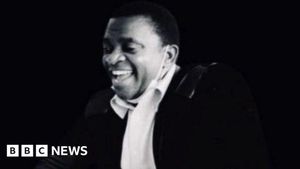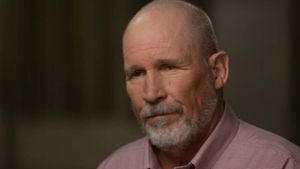Canadian Sikhs advocating for Khalistan, or the establishment of an independent Sikh state, are claiming harassment by the Indian government. This serious allegation centers on two prominent activists, Parvkar Singh Dulai and Bhagat Singh Brar, who assert they have been denied the ability to fly since 2018, ostensibly because of their political beliefs and activism. Their protests have now led them to take legal action against the Canadian government, seeking resolution through Canada's highest court.
The situation isn't just about flight restrictions; it encapsulates broader concerns over India's alleged targeting of its expatriates engaged in political dissent abroad. Dulai and Brar have been vocal about their stance on Khalistan, and both have significant backgrounds tied to activism and previous legal scrutiny. Dulai, particularly notable for his role as a researcher during the Air India trial defense, has found himself at the center of this conflict.
At the crux of their legal battle are the no-fly lists implemented by the Canadian government, which they argue are being misused to suppress dissenting voices within the Sikh community. The duo plans to challenge the validity of these travel restrictions, arguing they represent not merely bureaucratic oversight but intentional governmental action aimed at silencing legitimate political voices.
These activists’ experiences highlight the struggles faced by many who are involved with politically sensitive issues, particularly those tied to international relations. The case has become emblematic of larger discussions involving freedom of expression, state power, and the rights of minorities. With tensions between India and Canada fluctuated over the years—especially as Canada houses a significant Sikh diaspora—this controversy finds itself at the tumultuous intersection of international relations and local activism.
Brar positioned himself firmly against the Indian government's measures, claiming they are orchestrated to intimidate both activists and their families. “It's not just about us; it's about everyone who believes we should have the freedom to express our thoughts without repercussions,” he stated emphatically.
Legal experts suggest the pair's case might invoke responses beyond just travel powers—potentially raising questions about how far governments can intervene to dictate the movements of onshore residents based on foreign political relations. Their situation offers insights not only on immigration laws but also on the broader dynamics of global politics and diaspora identity.
Over recent years, the dialogue surrounding Khalistan and Sikh rights has gained significant traction within Canada, bringing increased scrutiny on how the Indian government interacts with its diaspora. Reports of Indian officials exerting pressure on Canadian law enforcement and public institutions have raised concerns among various advocacy groups.
Prominent Sindh activists assert the presence of systematic targeting initiated by India, which they see as undermining human rights and freedoms of expression. For many Sikhs, this isn’t merely theoretical; numerous community members express fears of persecution when they engage with issues deemed sensitive to the Indian government.
Others within the Sikh community have also lent their voices, asserting the no-fly list’s existence serves as both policy and political intimidation. Critics argue this situation occurs under the guise of national security, but many simply interpret it as state-sponsored oppression of dissenters.
With this initial lawsuit expected to progress, many will be watching closely not just for the individual outcomes of Dulai and Brar’s predicament but for the larger ramifications it could have on Sikh activism within Canada. Should the court ruling offer support for their case, it would be seen as signaling potential protections for political dissenters against governmental overreach.
Canadian officials have, so far, declined to comment on the particulars of this case, citing the need for judicial processes to be maintained without outside interference. Yet Dulai and Brar’s challenges are prompting more political discourse—not just about their rights as Sikhs advocating for Khalistan but about how governments engage with their diasporas.
Canada sees itself as a haven for individuals fleeing political oppression elsewhere, yet this case invites citizens to necessarily wrestle with the addition of such conflicts creeping closer to home. Political alliances, both domestic and abroad, are setting the stage for discourse about which subjects can be freely debated and which invite repression.
Members of Parliament have reiterated their commitment to protecting Canada’s diverse communities, yet the practical application of such allotted freedoms continues to be questioned, particularly within the Sikh community. Activists are pushing the boundaries, seeking outward acknowledgment of their struggles and protections against potential governmental overreach.
This narrative, marked by its complexity and passionate defense of rights, underlines something vibrantly human: the longing for respect and acceptance within both societal frameworks and family lineages. The stakes couldn't be higher as Dulai and Brar seek their day in court—a chance not just to reclaim their freedom but also to advocate for the community at large.
With the legal system now engaged, many await the potential outcomes of the judicial decision to understand how these acts of governmental control are viewed within the parameters of Canadian law and human rights. High-profile Mediacoverage will likely continue as developments arise, keeping the heart of this issue firmly within the public eye.
For Dulai and Brar, this could represent the beginning of either vindication or another chapter of struggle. Their fight symbolizes the broader Sikh quest for identity and freedom against oppressive measures, framing the conversation around political dissent within and beyond international borders.
Securing their right to travel may seem like one small victory, but it stands to echo far beyond individual travels—it encapsulates the aspirations of many who yearn for the freedom to be heard and seen, without fear. The path may be long, but as advocacy grows and pressures mount, these activists hope their plight will transform the political narrative surrounding Sikhs and their demands for recognition and justice.



